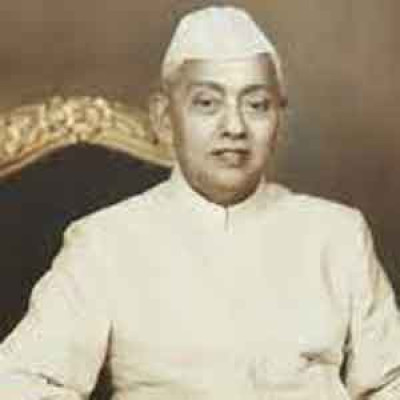Life & Legacy
He was a very bright student. Bishnuram studied at Cotton Collegiate School in Gauhati (now Guwahati) and completed his matriculation in 1905.
Bishnuram joined the Indian National Congress in the 1920s and participated in the Non-Cooperation Movement. In 1926, he was appointed Joint-Secretary of the Reception Committee of the Pandu session of the Indian National Congress. In 1930, Bishnuram was elected President of the Assam Provincial Congress.
When provincial autonomy was introduced in 1935, Bishnuram served as the finance minister in Gopinath Bordoloi's cabinet. In 1950, Bishnuram was elected Chief Minister of Asam and served from 1950 to 1957. As the Chief Minister, Medhi understood the gravity of the illegal influx from Bangladesh posing serious threat to the local population. He took stern action against illegal settlers which made him unpopular amongst few powerful members of his own party who considered the settlers as prominent vote bank.
Bishnuram Medhi was known for his strict governance, integrity, and bold decision-making. As a member of the Indian National Congress, he contributed significantly to the political stability of Assam during its formative years. After serving as Chief Minister, he was appointed as the Governor of Madras State (now Tamil Nadu) from 1958 to 1964.
Bishnuram Medhi had a long eventful life which came to an end on 21 January 1981 at the age of 92. He did not have any children. As per his wish, his home at Hajo was converted into Shishu Kalyan Kendra (children welfare centre) while the other house in Latasil, Guwahati, was made a children library under Bishnu Nirmala Trust. His wife, Nirmala Medhi, was a devoted and pious lady. It is said that Nirmala Medhi, an expert weaver herself, took hand weaving tools to Madras Rajbhawan. One Tamil gentleman saw the Late Nirmala Medhi weaving the traditional Assamese Gamocha and appreciating the tremendous business potential, started producing Gamocha in Madras in large scale and thus Gamocha from Madras (Tamil Nadu) started selling in Assam.
